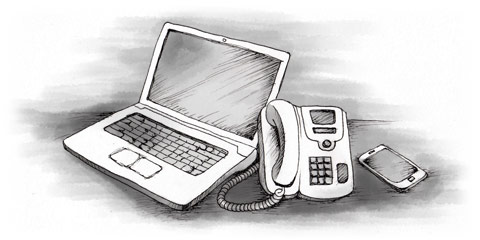The mobile phone companies Wataniya, Zain and Viva provide in-home internet service, as well as other companies like FASTtel, Gulf Net and Quality Net.
You should be aware that cable-based internet might have some problems. The Middle East's network is connected to Europe's through fibre optic lines. In the past, the internet was susceptible to weak receptions due to poor maintenance and outages when there was an earthquake. Recently, Kuwait has been updating its network, which has made connections better but still prone to outages.
Setting up internet in your home
In order to get an internet connection, you will need to sign up with your preferred provider. They can be reached by telephone, internet, or by going to one of their store locations. You'll need your civil ID and some extra cash for the start-up fee and any hardware you may need (e.g. modems).
Some internet providers require you to sign a few more documents and agreements. For example, if you're getting a connection that uses a landline like dial-up, you'll need to sign a form which verifies that the landline is yours.
Kuwait regulates certain media content pretty tightly (e.g. pornography sites), and you may have to sign an agreement saying you won't use your connection for such purposes. However, this is needless because your internet provider will block them anyway.
Paying for internet
Internet providers offer monthly prepaid and postpaid plans, which means that you can purchase a certain number of hours or pay certain rates for usage. Providers will also sell you monthly packages determined by connection speed. As with internet anywhere, faster connections cost more.
You can pay as little as 1 KD for 15 hours' worth of connection with a prepaid card from Quality Net, or a flat fee for monthly high-speed access from Wataniya Net or satellite internet access with Gulf Net.


